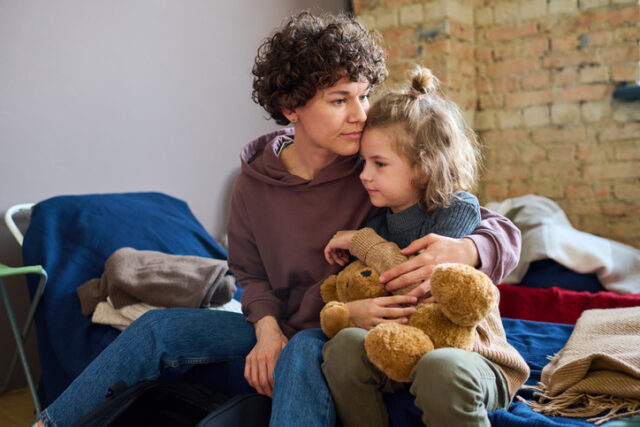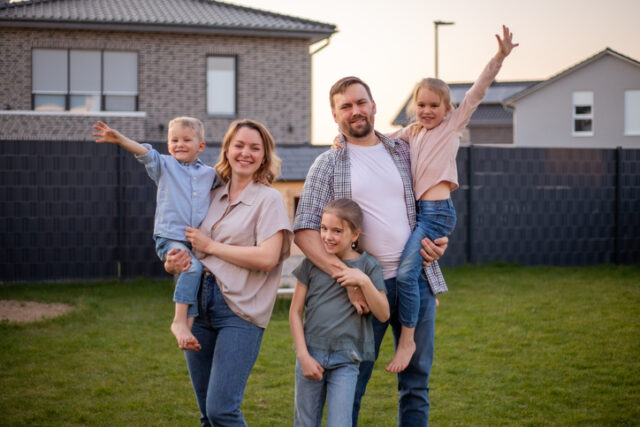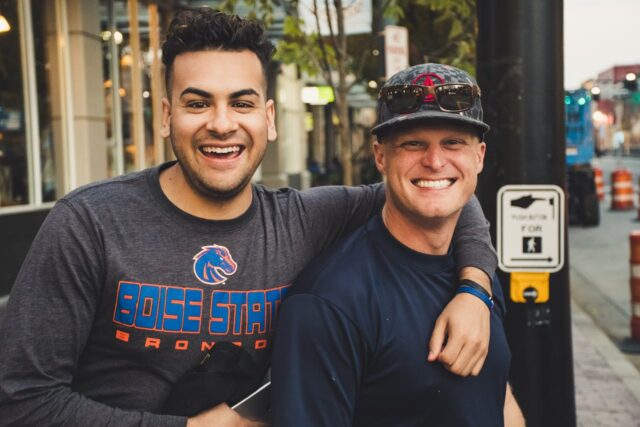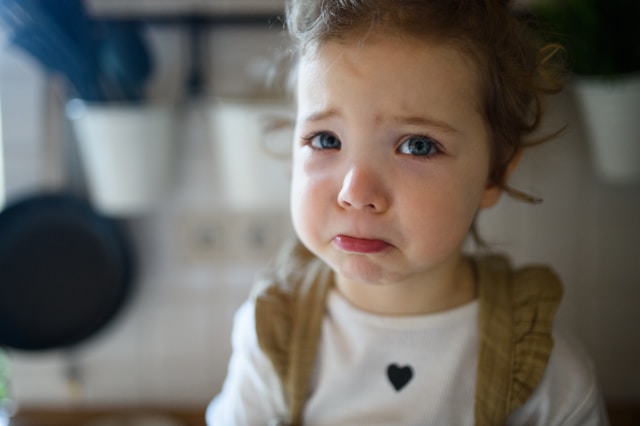Growing up poor shapes you in ways that go beyond just not being able to afford things.

Sure, seeing your parents struggle to pay bills or not know if they were going to be able to put food on the table or get you a new pair of boots for winter is tough, but the effects these experiences leave on you go beyond just the financial. Chances are, even if you’re doing well for yourself these days and money isn’t a struggle for your family anymore, certain things stick with you. Here are some qualities you may have as an adult because of your upbringing.
1. You feel guilt over spending money on yourself.
 Source: Unsplash
Source: Unsplash When you grow up hearing “we can’t afford that,” spending money on yourself can feel indulgent or wrong. Even as an adult, treating yourself to things you can now afford — like a nice meal or new clothes — might trigger feelings of guilt or anxiety. It’s hard to shake the mindset that every penny should go toward survival.
2. You struggle with a constant fear of instability.

Poverty often means living on the edge of crisis. Whether it was fearing eviction, food shortages, or unpaid bills, the constant threat of instability leaves an emotional mark. Even when you achieve stability later in life, you may struggle with a lingering fear that it could all fall apart at any moment.
3. You carry a sense of shame about your upbringing.

Growing up poor can make you feel “less than” your peers. Whether it was wearing hand-me-down clothes, using free school lunches, or living in a run-down home, these experiences can lead to a deep sense of shame. Even as an adult, memories of those moments can resurface and affect your self-esteem.
4. You feel pressure to succeed for your family.

When you grow up in a poor household, you may feel an intense obligation to “make it” for your family. The pressure to achieve financial success can become overwhelming. The fear of letting down your loved ones can leave you feeling stressed and anxious, even when you’re doing your best.
5. You develop a scarcity mindset.

Poverty can make you believe there’s never enough to go around. This is known as a scarcity mindset, and it can cause you to cling to resources, opportunities, or even relationships out of fear of loss. It’s hard to embrace abundance or take risks when your default thinking is that everything is limited and fleeting.
6. You struggle to feel worthy of success.

When you grow up in poverty, achieving success can feel like stepping into unfamiliar territory. You might question whether you deserve the good things that come your way. Imposter syndrome can creep in, making you feel like you don’t belong or that your achievements are a fluke.
7. You have complicated feelings about asking for help.

Growing up in a poor family often means learning to be self-reliant. Asking for help might have been seen as a weakness or a burden. As an adult, you may struggle to reach out for support, even when you really need it, because you’ve been conditioned to believe you should handle everything alone.
8. You feel resentment toward people who had more.

Watching other people enjoy things you couldn’t have — like holidays, new clothes, or after-school activities — can create a sense of resentment. Even as an adult, seeing people who had more privileged upbringings can stir up feelings of unfairness and frustration that are hard to ignore.
9. You experience anxiety about your future.

When poverty shaped your childhood, planning for the future can feel stressful rather than hopeful. You may worry about falling back into financial hardship, or fear that no amount of preparation is enough. The constant anxiety can make it difficult to enjoy the present.
10. You have trouble trusting anyone or anything.

Poverty can expose you to situations where promises are broken or people let you down. Whether it was unreliable landlords, undelivered help, or unstable family dynamics, these experiences can lead to a deep mistrust of most people and situations. Building and maintaining healthy relationships might feel challenging.
11. You feel the need to hide your background.

As you grow older, you might try to distance yourself from your upbringing to avoid judgment. You may downplay or hide your childhood experiences, fearing that people will see you differently. This can lead to a sense of isolation, as you’re not fully sharing who you are.
12. You find it tough to set boundaries.

When you grew up in an environment where resources were scarce, saying “no” might have felt impossible. As an adult, this can translate into over-giving, people-pleasing, or feeling responsible for everyone else’s needs. It’s hard to prioritise yourself when you’re used to putting everyone else first.
13. You struggle with feelings of envy.

Seeing other people easily enjoy things you had to fight for — like financial security or career opportunities — can trigger envy. Even if you’re doing well now, those old feelings can creep in, reminding you of what you missed out on. It can be tough to feel happy for people when you’re still carrying that emotional baggage.
14. You feel emotionally exhausted from always “keeping up.”
 Source: Pexels
Source: Pexels Growing up poor often means you’re constantly trying to fit in or prove yourself. The drive to “keep up” with everyone else can be emotionally draining. The pressure to appear successful, competent, and in control, even when you’re struggling, can leave you feeling exhausted and disconnected from your true self.




